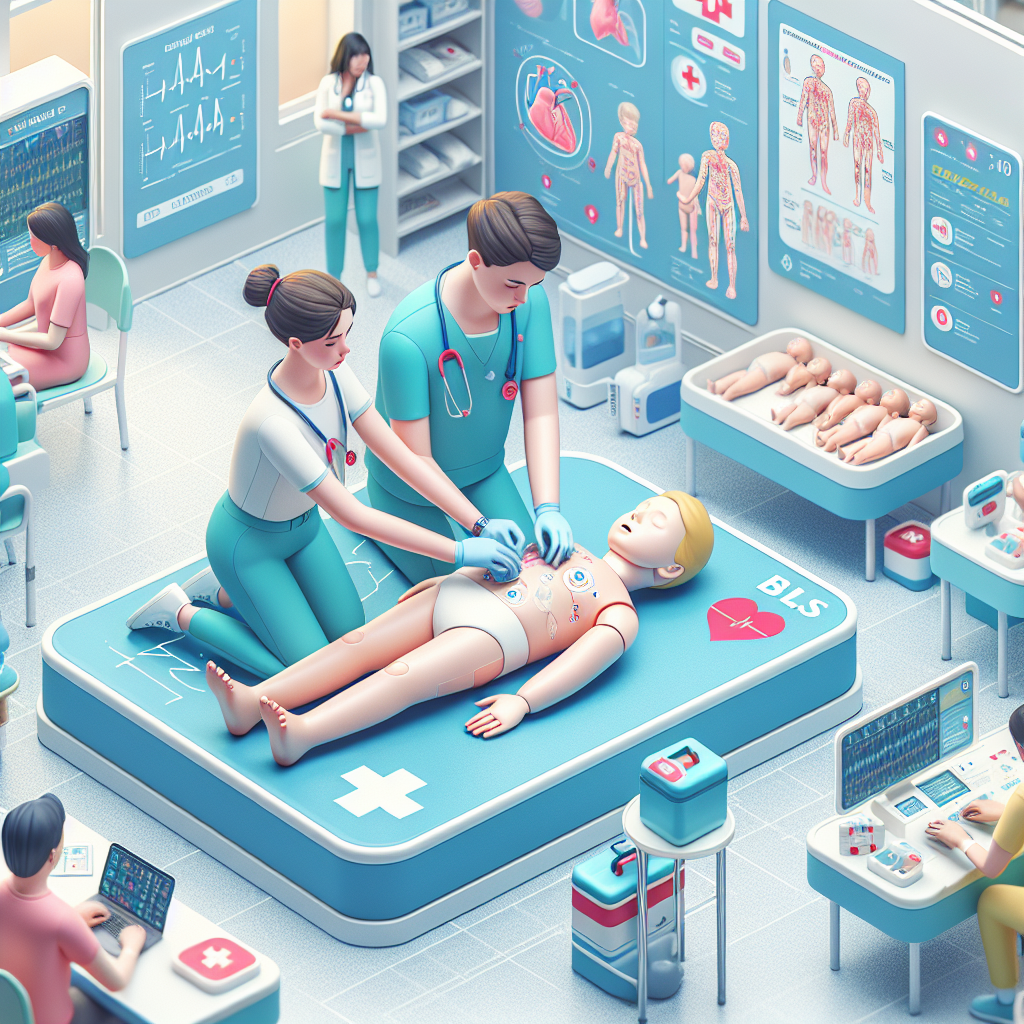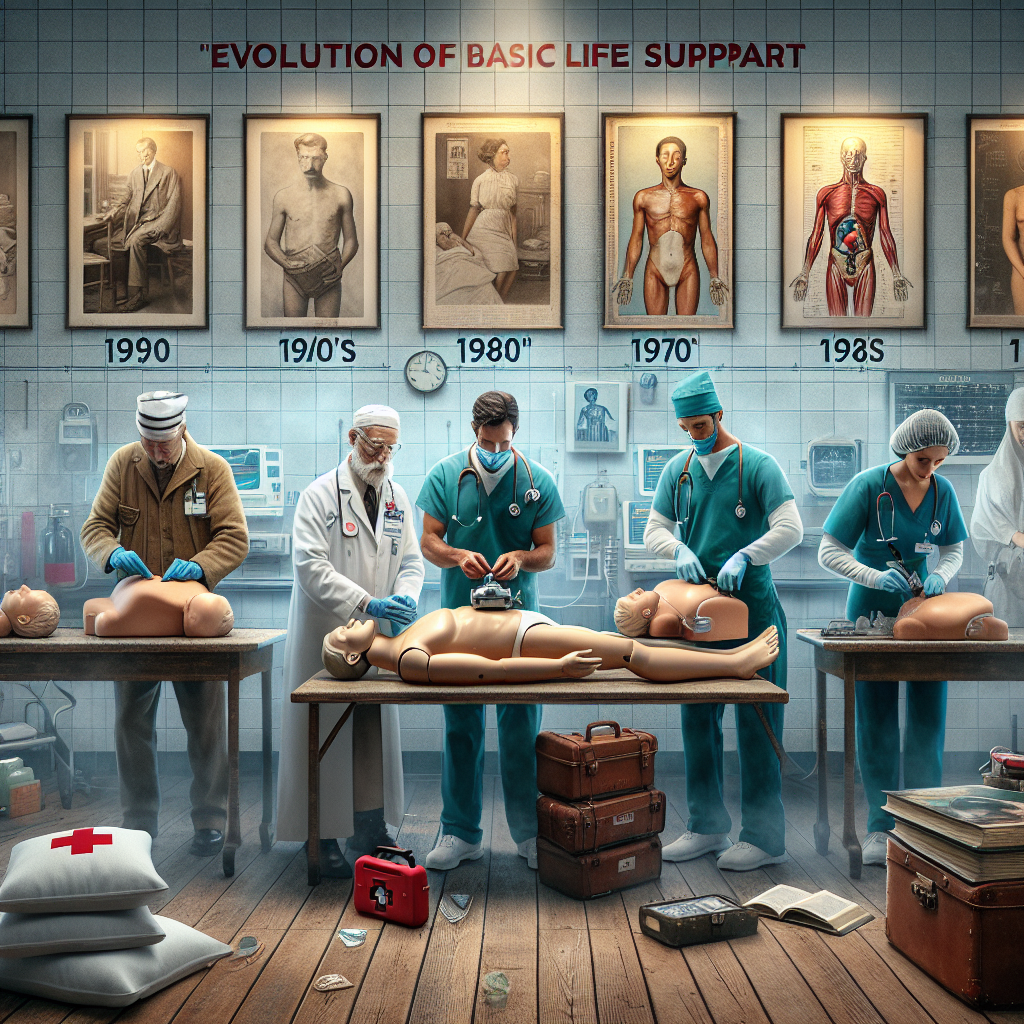“Debunking Common Myths About BLS Certification”

The blog debunks five myths surrounding Basic Life Support (BLS) certifications: they aren’t just for doctors and nurses, acquiring one doesn’t demand excessive time commitment, a CPR training is not equivalent to BLS certification, online BLS certification is as credible as in-person training, and BLS certification isn’t a one-time requirement, needing renewal every two years.
“Understanding the Importance of BLS in Pediatric Emergencies”

Basic Life Support (BLS) training is crucial in pediatric emergencies due to children’s unique anatomical and physiological responses to injury and illness. BLS training includes CPR, use of an automated external defibrillator (AED), and relief of choking, vital skills in increasing child survival in emergencies.
“Exploring the Evolution of Basic Life Support Techniques”

Basic Life Support (BLS) techniques, originating in the 18th century, have evolved with advancements in medicine and technology. Key developments include the introduction of Automated External Defibrillators, the emphasis on high-quality chest compressions, and the incorporation of rescue breaths. Continuous BLS certification, like that offered by American Health Training, ensures up-to-date knowledge of these life-saving techniques.
“Debunking Common Myths About BLS Certification”

This blog debunks five myths about Basic Life Support (BLS) certification, emphasizing that it’s not just for emergency responders but also crucial for other healthcare providers and non-clinical staff. The training is designed to be efficient and flexible, not overly time-consuming or expensive. BLS certification is not a one-time requirement; regular recertification ensures alignment with evolving practices and guidelines.
“Decoding BLS: An In-depth FAQ for New Medical Students”

“Decoding BLS: An In-depth FAQ for New Medical Students” discusses the importance of Basic Life Support (BLS) training for medical students. Key skills include chest compressions, airway management, and using an automated external defibrillator. The FAQ covers the purpose of BLS, the certification process, how to prepare, and how BLS differs from Advanced Life Support. It is intended to guide students on their path towards BLS proficiency and certification.
“Decoding BLS: A Comprehensive FAQ for New Healthcare Professionals”

The blog post discusses the importance of Basic Life Support (BLS) training for healthcare and public safety professionals. It elaborates on what BLS entails, why it is vital, who needs certification, and how to get certified, including online options. BLS certification, usually valid for two years, enhances professional qualifications and emergency response abilities.
“Understanding the Importance of BLS in Emergency Situations”

Basic Life Support (BLS), a life-saving procedure performed in emergencies, can double or triple victims’ survival rates. BLS consists of interventions like chest compressions and artificial ventilation by trained personnel or qualified bystanders. With heart diseases being a leading cause of death, learning BLS could be vital.
“Exploring the Evolution of Basic Life Support Techniques”

The Basic Life Support (BLS) technique has seen significant advancements over the years due to the progress in medical science and technology. The American Heart Association introduced the first CPR guidelines in 1966, with the 21st century ushering in the hands-only CPR method. The use of Automated External Defibrillators further revolutionized BLS, elevating survival chances after cardiac arrests. The future of BLS could include virtual reality training, telemedicine, and AI-driven AEDs.
“Debunking Common Myths about BLS Certification”

The blog dispels top five myths about Basic Life Support (BLS) certification. It clarifies that BLS Certification is for anyone who can provide emergency care, not cumbersome, not expensive, essential despite having CPR training, and regularly updated but manageable.
“Debunking Common BLS Myths: A Fact-Based Approach for Paramedics”

This blog debunks common myths surrounding Basic Life Support (BLS) training for paramedics. Contrary to misconceptions, BLS certification is not just for beginners, but required at all levels of healthcare; it needs regular renewal and covers more than CPR. Online courses are deemed just as effective as in-person training. BLS certification aids the proficiency of both novice and experienced paramedics, and is a cost-effective, time-flexible investment for quality emergency care.

